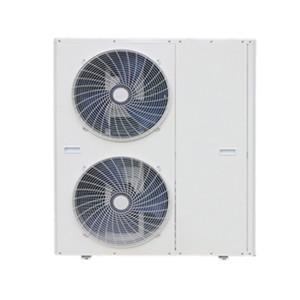Description
Hot
Water Heat Pump
Usually
when you think of solar water heating, you think of panels and collector tanks
installed on the roof - a traditional solar water heating system. However, you
can also use a hot water heat pump.
Heat
pumps are another way to heat water using renewable energy - it doesn't require
solar panels! Heat pumps can save you a ton of money on your hot water bill
because they use about one-third the energy of an electric water heater. Plus,
there are generous rebates that make them a very economical option!
How does
a hot water heat pump work?
A heat
pump is a bit like a reverse refrigerator. It transfers the heat from the air
outside the unit to the water stored in the heater through a heat exchange
system. In the case of heat pumps, "heat" is a relative term, as they
can still work in very cold conditions* - at least -10 degrees Celsius, so it
will still provide you with hot water on winter nights. how can that be?
1.
Outside air is drawn into the heat pump system by a fan, into an evaporator
containing a special type of refrigerant, which is stored in the pipes. The
refrigerant used is called R134a, which is not a CFC and therefore does not
negatively affect the Earth's ozone layer.
2. The
evaporation or boiling point of R134a is -26C; while the boiling point of water
is 100℃. Temperatures that feel cold to us are still enough to "boil"
the refrigerant. The air drawn into the system is much warmer than the
refrigerant, changing the refrigerant from liquid to gas within the heat pump
piping.
3. The
compressor then pumps the now gaseous refrigerant into a small valve and
compresses it; and as the process generates a lot of heat.
4. The
heat exchanger transfers heat from the heated refrigerant gas piping to the
water tank where the water is stored.
5. The
temperature of the refrigerant has now dropped dramatically due to the heat
being taken away, so it returns to its liquid state and the heat pump cycle
begins again.
The
benefits of hot water heat pumps
1.
Long-term savings in hot water related costs
2. The
heat pump produces 3 to 5 times the amount of renewable energy that is required
to power the unit.
3.
Considering the reduction of greenhouse gas emissions by reducing energy
demand, this is an environmentally friendly hot water option.
4. The
heat pump is efficient even at low temperatures*. In extremely cold
environments, the electric assist is activated to ensure the water is kept at
the desired temperature
5. No
roof space or panels required
Easy to
install because solar heat pumps use the same connections as electric hot water
systems.
Heat
Pump Suitability
1. We do
not recommend installing heat pump water heaters in areas with lower average
temperatures. Although these units will operate in cold weather, installation
in cold climates will result in longer compressor run times, resulting in
shorter unit life expectancy and increased energy consumption.
2. We do
not recommend installing heat pumps in cooler areas. Usually in a warm enough
area for the heat pump to operate efficiently. The annual average ambient
temperature should be equal to or greater than 19 degrees Celsius.
How much
does a heat pump cost?
Prices
vary based on your needs and location, but you can expect to pay up to a few
thousand dollars for a quality heat pump. However, the cost can be largely
offset as there are generous rebates, making them a very economical option!
These rebates can be substantial, so consult our heat pump experts for the best advice on the type of equipment you need and any incentive programs that may apply.






